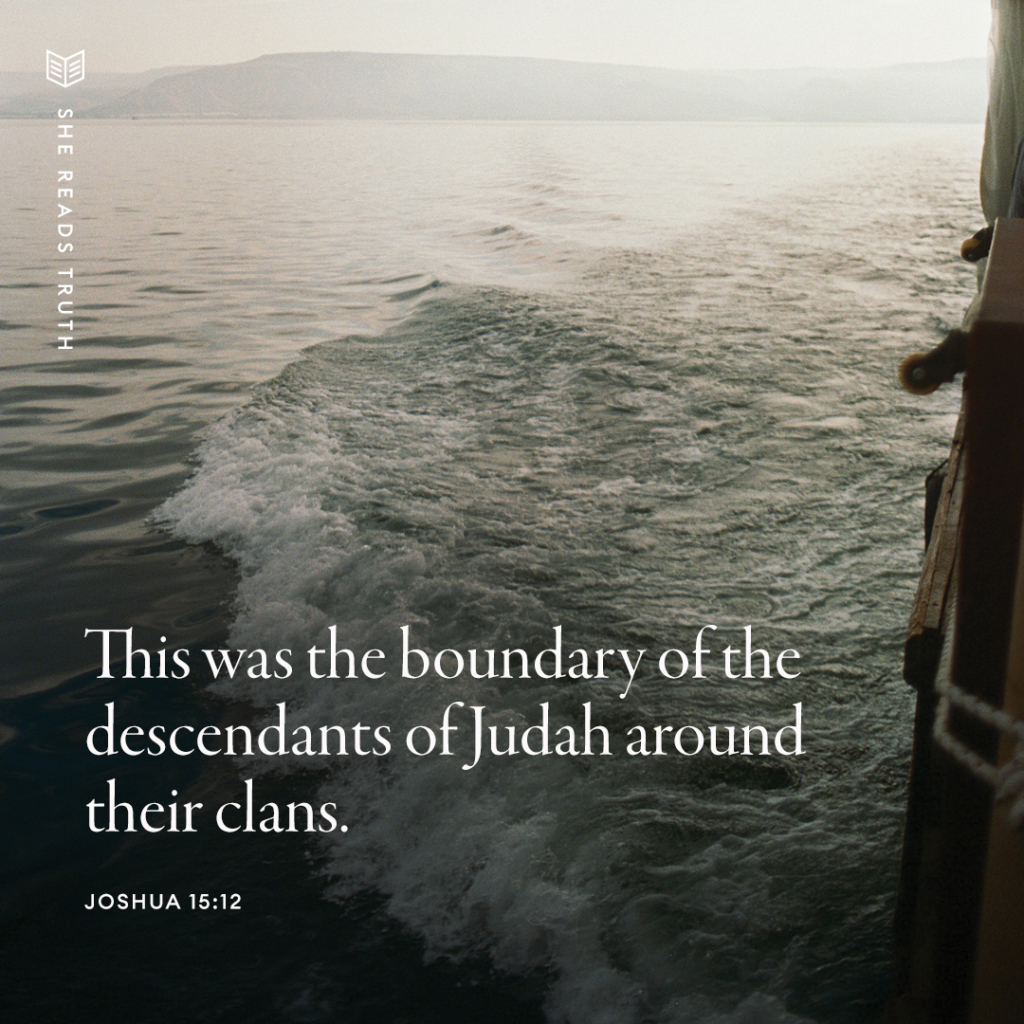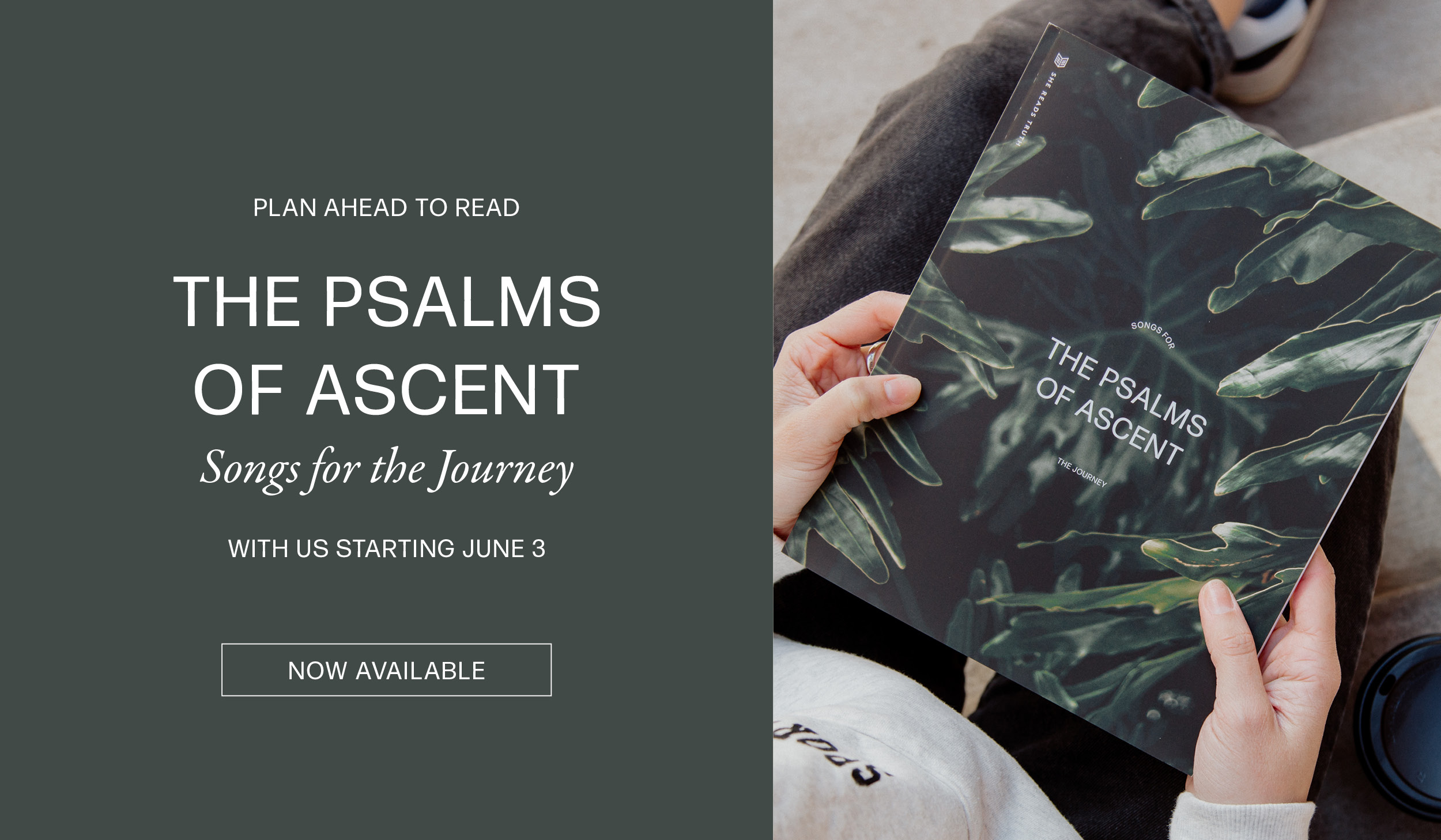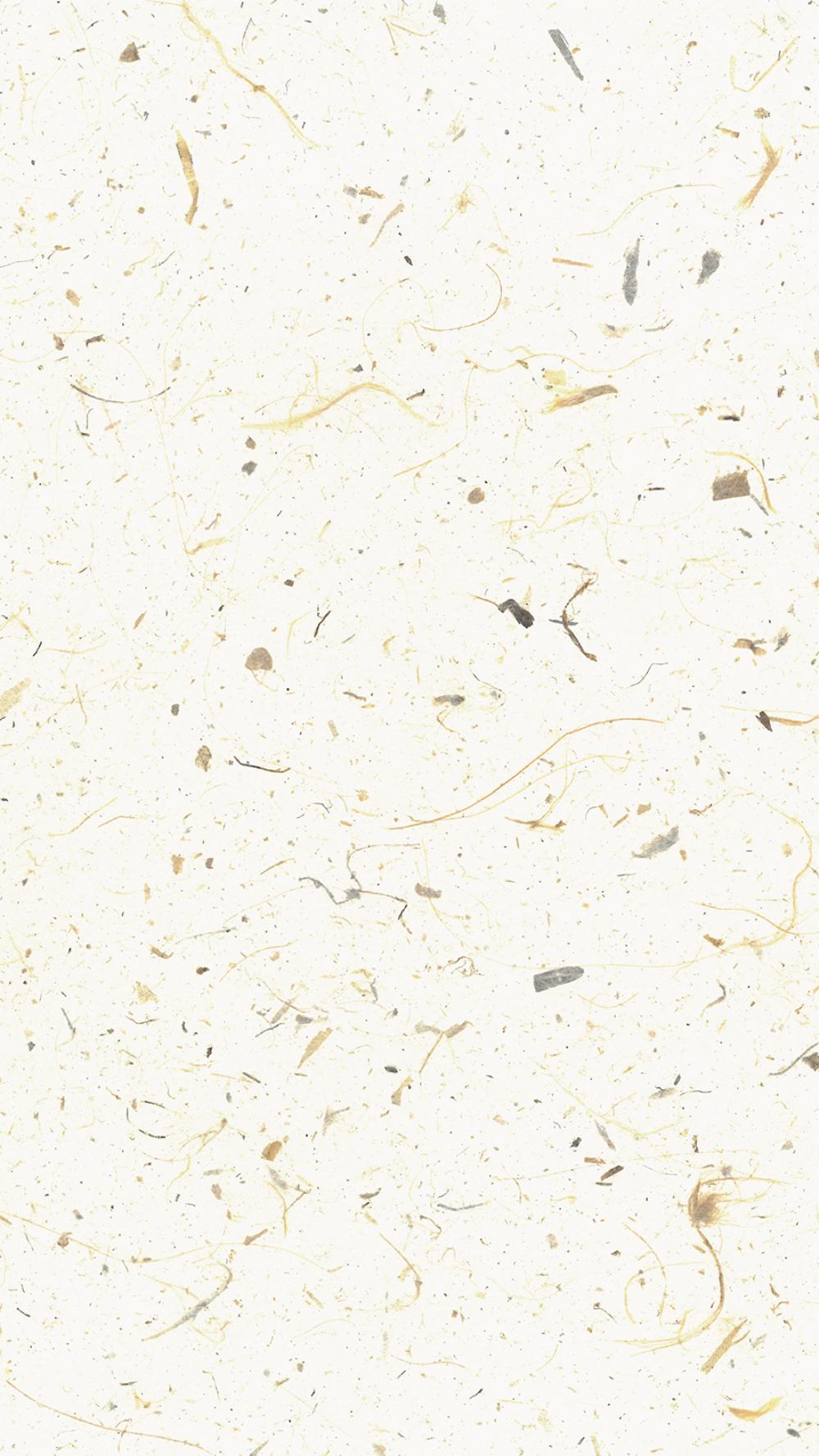My parents live on three acres in the Northern California foothills, where the land’s boundary lines are hard to see. After a forest of pine trees and a jungle of blackberry bushes, our property comes to a point. You’d never know it since our neighborhood acreage spills out into one messy field of overgrown weeds. There are no fences or stakes. Just a field that dead ends at an old street. Being good friends with our neighbors, we’ve always had permission to trot down there anytime we like, silver pails in hand, to harvest blackberries for homemade ice cream.
In the book of Joshua, boundary lines and land borders are given more importance. Joshua 15 thrusts us right into the heart of land divisions. Caleb had just received his inheritance, and it was time for the tribe of the descendents of Judah to receive theirs (Joshua 15:1). Unless you’re the type of person who loves reading detailed lists of ancient real estate, it can be tempting to just skim the rest of the chapter. But stick with me.
First, we’re told about the many twists and turns of the southern border until it hit the Mediterranean Sea (Joshua 15:2–4). After moving past the eastern border in a sentence, we get a detailed description of the northern border that was three times as long as the southern (vv.5–11). After that, we hear about the inhabitants Caleb drove out of their homeland so Judah’s descendents could take up residence (vv.14–15), as well as comprehensive lists of cities Judah inherited by clan: twenty-nine outermost cities, thirty-nine in the Judean foothills, thirty-eight in the hill country, and six in the wilderness (vv.21–62).
Whew! That’s a lot of people, cities, and borders. Personally, I think it’s easy to want to skip ahead to “the good parts” or take a detour to a familiar psalm. But the text begs another question: Why does this matter for us? You see, to Judah, this was the good part. When we read the statement “this was the boundary of the descendants of Judah around their clans” (Joshua 15:12), we glimpse Judah’s role in redemption history. Because land was an invaluable commodity at the time, this inheritance was tangible evidence of God’s faithfulness and the fulfillment of His promise to them. It was God’s provision. It was their manna.
The same God who was faithful to Judah is faithful to us today. Even though property boundary lines are a little more loosy-goosy in my parents’ neighborhood than they were in the book of Joshua, they still matter. To us, these invisible lines point to the many trees and butterfly bushes that embody God’s provision for our family over the years. How have you seen God provide for you this year? If you’re still waiting to taste His provision, take a moment to praise Him for the ways He’s already taken care of you, and then ask for the patience to see His faithfulness again.



As it says in one of the Psalms “The boundary lines have fallen in pleasant places for me.” Lord, thank You for providing a husband, a home where I don’t have to take abuse of others to keep the peace, for the sunshine, peaceful mornings, the list goes on and on! I have tears in my eyes thinking about how much You’ve taken care of me. Please give me the patience to see Your faithfulness again. In Jesus’ name, amen.
I’ve been very blessed in my my life. Sometimes when I read the Bible, it seems God picks and chooses certain people. I guess the symbolism is the point. Could you enlighten me?
God is always there for me. He provides my peace of mind and trust in Him on a daily basis. Without God, my life would be empty and pointless. I have no doubt that He is always with me.
God has provided me with a new workplace this year
God provided me with the removal of a very toxic work environment that was affecting my mental health.
God has provided for my family this year with the ability for both of us to work from home. So thankful for our jobs and the flexibility to take care of our kids. God has been so good to my family.
I love that! Asking our loving Father for the things that He desires us to have! Caleb’s daughter very sensibly knew she needed springs and asked for one and Caleb gave her two. God gives to us like that. More than we could ask or imagine!
The provision of land as God promised is a testament of God’s great faithfulness but also God as our source of provision. I couldn’t help by notice this personal request in the midst of Joshua 15
18When she came to him, she urged him to ask her father for a field. And she got off her donkey, and Caleb said to her, “What do you want?”
19She said to him, “Give me a blessing. Since you have given me the land of the Negeb, give me also springs of water.” And he gave her the upper springs and the lower springs.
These scriptures reminded that God, my Father is asking me, “My child, what do you want?” As His daughter, I should not hesitate to ask my Heavenly Father for the things I desire with in His will and desire for me to have them.